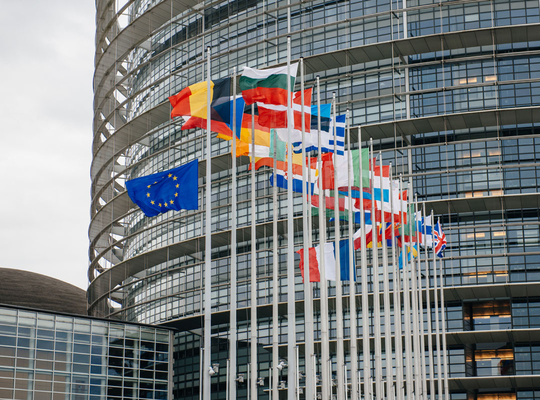You are here
European Council less naive than European Commission

The European Council is putting a more eurorealistic approach on the table for the coming six months than President of the European Commission Jean-Claude Juncker did in his recent State of the Union. “No otherworldly utopias, but specific and achievable measures: doing, not dreaming. The Member States seem to have understood this better than the European Commission, even though there remain some sticking points,” the N-VA’s MEPs feel.
“While Jean-Claude Juncker floundered helplessly for a clear focus, President of the European Council Donald Tusk continues to make inroads towards Eurorealism The N-VA opts for a realistic, feasible approach to the European project. That eurorealism is translated into a Europe that is strong where necessary, in order to achieve results that are tangible and specific to its own citizens. The European cooperation must also have a sufficiently democratic platform among the residents of the Member States. This is why the N-VA advocates for constant, critical reflection and is opposed to the pipe dream of a European super state. eurorealism ,” Mark Demesmaeker says with satisfaction. “This means he is increasingly in line with our views at the N-VA. It means a choice for concrete policy that takes as its starting point the reality in the various Member States, not euro-fantasies from the Commission.”
Demonstrating added value
“The EU is not a goal in and of itself, not some pre-ordained destiny,” his colleague Sander Loones notes. “The European partnership must prove its added value by delivering tangible benefits for Europeans, which is not sufficiently the case right now. All too often, the EU gets bogged down in grand declarations, while what we need now is action. For example, the Council is declaring that Europe “will never go back to the open borders policy of recent times”. Fantastic: but now this has to be put into solid practice. An admission system for non-EU citizens wishing to enter Europe is a good proposal, as is the 108 million euros to strengthen our external border in Bulgaria. However, more is needed.”
Helga Stevens adds: “The European bodies must finally turn their attention to introducing a maximum limit on the number of asylum seekers, and I deplore that the text makes no mention of extra efforts to reach new repatriation agreements with the countries of origin.” And not only is more needed in the field of immigration and security, it’s also the case regarding social dumping: “Although the Eastern European Member States have been quibbling about the matter for years, they too have to understand that equal pay for equal work in the same place is a necessity. By insisting that everyone has to play by the same rules, we strengthen our own enterprises and we create more justice.”
According to Anneleen Van Bossuyt, it is a positive sign that the Council is apparently expending no more efforts on matters where there is no consensus anyway: “In particular I am thinking of the discussions on tax and Social security Social security is currently managed at the Federal level in Belgium. The most important pillars of Belgian social security are: sickness and invalidity insurance (NIDHI), pensions, unemployment insurance and child allowances. In addition, occupational illness, occupational accidents and annual holidays are dealt with at this level. Some Flemish parties have been campaigning for years for (large parts of) social security to be transferred to the Regions and Communities. social security . Nobody in Northern Europe is counting down the days impatiently waiting for more Transfers The money flows from Flanders to Brussels and Wallonia are called transfers. The transfers from the federal budget, the Financing Law and social security amount to between 6 and 7 billion euros per year, and 11 billion euros if debt repayments are included. The size of the transfers is always contested by the French-speaking side or they are just referred to as normal solidarity contributions. A study by Vives (KU Leuven) revealed that the transfers did not serve solidarity, but had a paralysing effect on the growth of both the Walloon and Flemish economies. transfers to the South. We don’t need a European social security or extra European taxes. On the contrary, let’s cooperate more on themes we do agree on, such as the further expansion of the digital internal market and a European energy market. The citizen will notice the added value of these things immediately in his or her wallet.”

